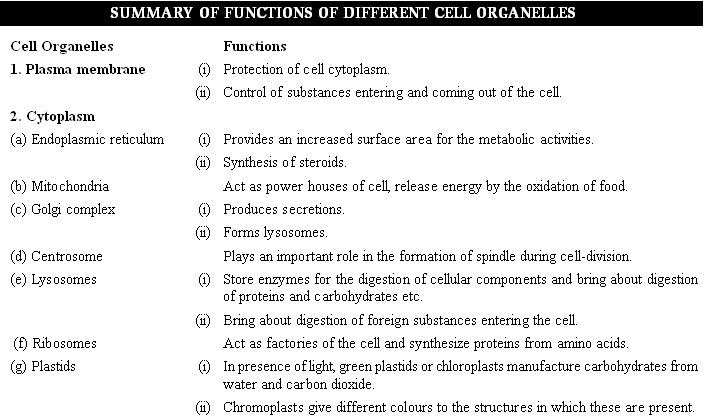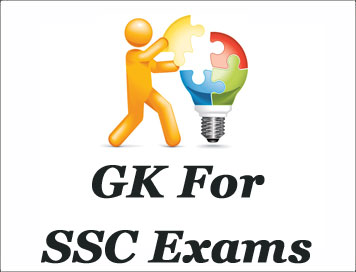General Knowledge for SSC Exams (Summary of Functions of Different Cell Organelles)
General Knowledge for SSC Exams (Summary of Functions of Different Cell Organelles)


Balanced Diet
-
The components of food are: Carbohy-drates, Fats, Proteins, Minerals, Vitamins, Water and Roughage.
-
If all the components are present in optimum proportions and quantity for maintaining the body in perfect state of health, activity and development then the food is called balanced diet.
Carbohydrates
-
Constitutes 3 elements : Carbon, Hydrogen and Oxygen.
-
Daily requirement 500 gms. 1 gm gives 17 KJ of energy.
-
Sources : 3 main cereals (wheat, rice and maize), sugar cane, milk, fruits, honey, beet, etc.
-
They are of 3 types : Cellulose, Starch and Sugar.
-
Structurally, carbohydrates are of 3 types : Monosaccharides, Disaccharides and Polysaccharides.
-
Excess carbohydrate is stored in the liver in the form of glycogen.
Fats
-
Provides twice the energy of carbohydrates (1 gm provides 37 KJ of energy).
-
Acts as the reserve food material because excess fat is stored in the liver and as adipose tissue.
-
An enzyme called Lipase digests fats. It breaks down into fatty acids and glycerol.
-
Daily requirement: 50 gms.
Proteins
-
Made up of Carbon, Hydrogen, Oxygen and Nitrogen.
-
Important for growth and repair of the body.
-
Made up of amino acids.
-
Kwashiorkar and Marasmus are the diseases which occur due to deficiency of protein.



